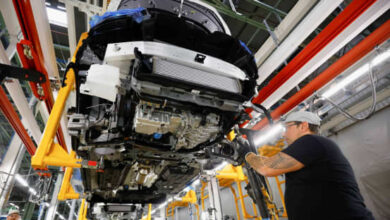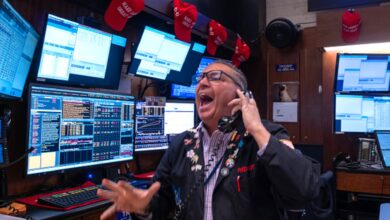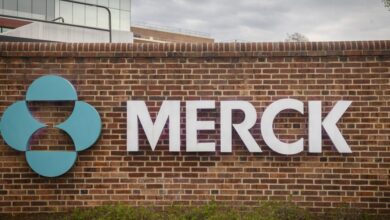Kamala Harris Lays Out Pro-Business Economic Philosophy in Speeches in Swing States
Unlock the free US Election Countdown newsletter
The big stories about money and politics in the race for the White House
Kamala Harris delivered a keynote speech in Pennsylvania on Wednesday to make a direct appeal to businesses, describing herself as a “capitalist” who believes in “free and fair markets” and “positive partnerships between government and the private sector.”
In her most extensive comments on the US economy to date, the Democratic presidential candidate also sought to draw a sharp contrast between herself and her Republican rival, Donald Trump.
In a speech at the Economic Club of Pittsburgh in Pennsylvania — a key battleground state — Harris portrayed herself as a champion for the working and middle classes and asserted that Trump is more focused on the wealthiest Americans.
“He has no intention of growing our middle class. He only cares about making life better for himself and people like him, the richest people in America,” Harris said.
“For Donald Trump, our economy works best if it serves the people who own the big skyscrapers, not the people who actually build them, not the people who install the wires, not the people who clean the floors.”
Harris criticized Trump’s trade policies later in an interview with MSNBC. While the Biden administration has maintained most of Trump’s tariffs on imports from China and added some new ones, Trump has proposed across-the-board tariffs on all imports of up to 20 percent as part of a much more aggressive trade agenda. Harris said Trump “just isn’t serious” about imposing such “broad-based” tariffs.
Trump and his allies have sought to portray Harris as a California liberal and Marxist, referring to the vice president as “comrade Kamala.”
But Harris pushed back on that description on Wednesday, saying that while she is a “dedicated public servant” and a “strong advocate for workers and unions,” she recognizes “the limitations of government” and believes policymakers need to engage private-sector job creators.
“I believe most companies are trying to do the right thing for the customers and employees who depend on them, and we must work with them to grow our economy,” she said. “An active partnership between government and the private sector is one of the most effective ways to fully unlock economic opportunity.”
With just a month and a half to go until the November presidential election, Wednesday’s speech marked Harris’ fourth visit to Pittsburgh, Pennsylvania — potentially the most important state in her bid to succeed Joe Biden as president — since launching her campaign in July.
With polls showing Harris and Trump neck and neck nationally and in key swing states, the vice president is under increasing pressure to articulate her economic agenda and be more specific about where she might differ from Biden. Polls consistently show voters rank the economy as their number one policy issue heading into November.
The vice president’s speech came a day after Trump outlined his plans for a “new American industrialism” and warned trading partners that he would attract jobs and production away from them to the United States. The Republican candidate has promoted a protectionist economic strategy, sweeping tax cuts and high tariffs.
Karoline Leavitt, a spokeswoman for the Trump campaign, said in a statement after Harris’ speech that the vice president was “right” to say “it’s time to turn the page.”
“She had three and a half years to prove herself, and she failed,” Leavitt added. “Personal savings are down, credit card debt is up, small business optimism is at a record low, and people are struggling to afford homes, groceries, and gas. Every time Kamala speaks, it becomes clearer that ONLY President Trump can MAKE AMERICA RICH AGAIN.”
Harris has proposed raising the corporate tax rate from 21 percent to 28 percent, as well as efforts to boost housing supply. She also proposed more tax incentives for families with children and first-time homebuyers.
However, her plans to crack down on price gouging in the grocery industry have drawn criticism from economists across the political spectrum, who warn that the proposals could lead to damaging market distortions.
The economy is a political weak spot for Biden and Harris after inflation hit a multi-decade high in 2022. Only 17 percent of registered voters were in the last election. Financial Times-University of Michigan Ross School of Business Poll said they were better off financially since Biden became president.
But inflation has cooled and the labor market has remained strong in recent months, and there are signs that voters are increasingly backing Harris on the economy.
The latest FT-Michigan Ross poll found that 44 percent of voters said they trusted Harris to handle the economy, compared with 42 percent who put their trust in Trump.
Additional reporting by James Politi in Washington
US Election Countdown
Register to our US Election Countdown newsletter, your essential guide to what’s happening in the 2024 presidential election




